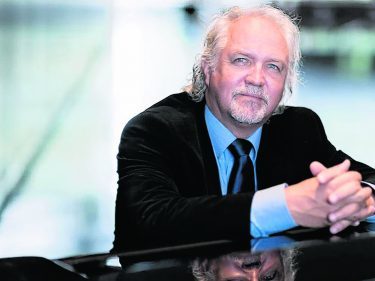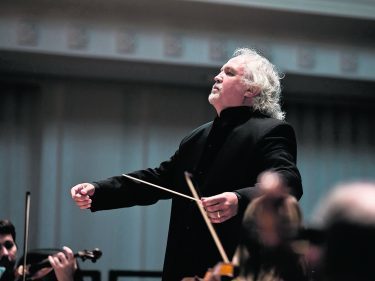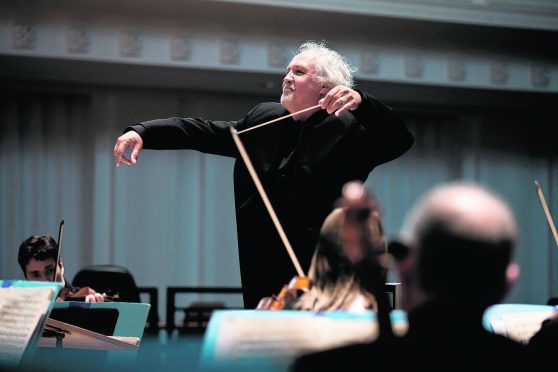As a young boy he sang in the Edinburgh Festival Chorus. He sang Mahler symphonies at Usher Hall and it was here his love for the composer began. Donald Runnicles has come a long way since those days in the domed music hall of Scotland’s capital city, moving up the orchestra career ladder, but his love for Mahler has never left him.
Donald Runnicles was born in Edinburgh and educated there and in Cambridge. He began his career in Mannheim, Germany, where he was a repetiteur, after a season at the London Opera Centre. Donald spent summers assisting in Bayreuth where he honed and explored his talents and visited the German repertory theatres and orchestras.
Donald said: “Hearing Mahler’s symphonies for the first time, when I was a student in Edinburgh, I felt as if I could reach out and touch their sound and live in their musical landscapes.
“It’s a feeling that has never left me. I am in awe of someone who, for the most part of the year, was conducting across the world and running an opera house and who then spent his available time off composing these incredible symphonies.”

Donald will be conducting Mahler’s 4th Symphony in Aberdeen as part of the BBC Scottish Symphony Orchestra. He became the orchestra’s chief conductor in 2009 and is now taking on the Emeritus position within the company. In those years, Donald has created such a connection with the musicians that he now has to use less energy “in the conveyance of intentions”. The mutual trust and spontaneity has deepened past the normal level of those who work together.
“We are companions on a journey together each time we perform,” said Donald.
“The music can unfold with a natural freedom, ideally coming even closer to the composer’s intentions. Reaching this point, like a couple anticipating each other’s thoughts and finishing one another’s sentences, is one of the most fulfilling aspects of a relationship with an orchestra.”
Gustav Mahler was an Austrian composer who was born in 1860. His career began at a young age as he was exposed to different genres, including folk and military music. Before the age of 20, he had composed several works and he created a career for himself as a concert and opera conductor.
Persecuted by the anti-Semitic factions in Austria, Mahler left his home country and travelled to New York, where he became conductor of the New York Philharmonic Orchestra in 1909. He composed whenever he could, including Symphony No.4 which he worked on around the years 1899 and 1900 and premiered in Munich in 1901. Mahler conducted it himself and the symphony makes reference to all things eternal. The final movement is an orchestral setting of Das Himmlische Leben – The Heavenly Life.
Donald said: “Each of his works is a quest for truth. I believe that Mahler was seeking to convey through his music the beauty that surrounds us, the joys and tragedies of life and the big questions that face us all.

“But what’s remarkable is that he’s also chronicling his own life – his relationship with his wife Alma, the birth and tragic death of his children, and his own failing health. And, if we are open to these works, I believe that each and every one of us can find ourselves in them too.
“Now, you can ask whether this music provides us with answers to those big questions. Probably not. But what they do is convey so much of what it is to be human. They are like tapestries full of beautiful detail – and at the same time, like fathomless wells, where no matter how deep you dig, you never really get to their essence.”
Donald enjoys returning to conducting Mahler’s symphonies. He can notice the passages or phrases that might
have been missed before and discovers or re-interprets the music in new ways. Even though Donald will be making conducting appearances less often, he hopes to continue exploring wonderful music.
He said: “This really is the greatest job in the world.”
Donald Runnicles and the BBC Scottish Symphony Orchestra will be at HMT in Aberdeen tomorrow, Friday, November 4. See www.bbc.co.uk/events/e883d4
